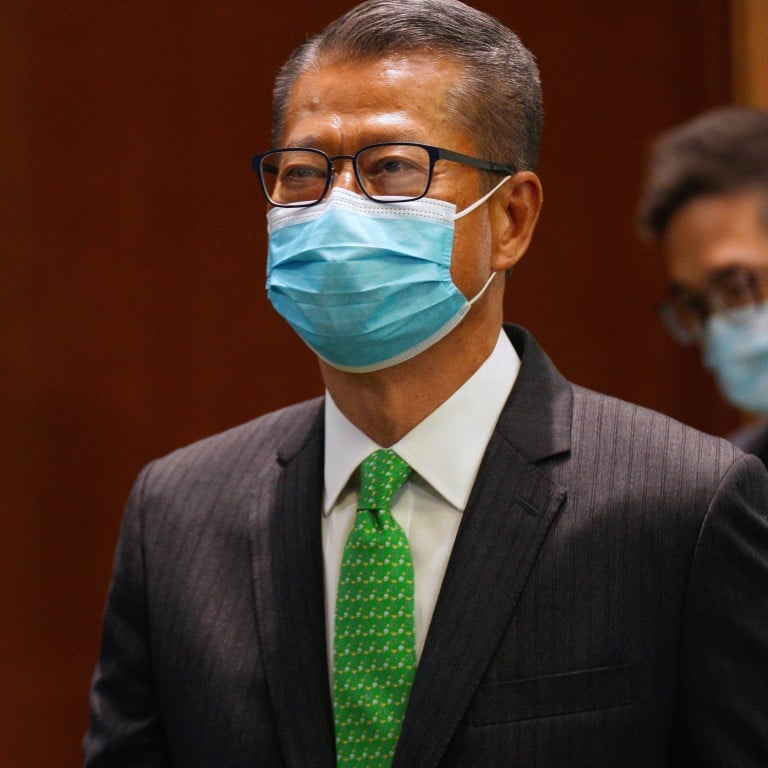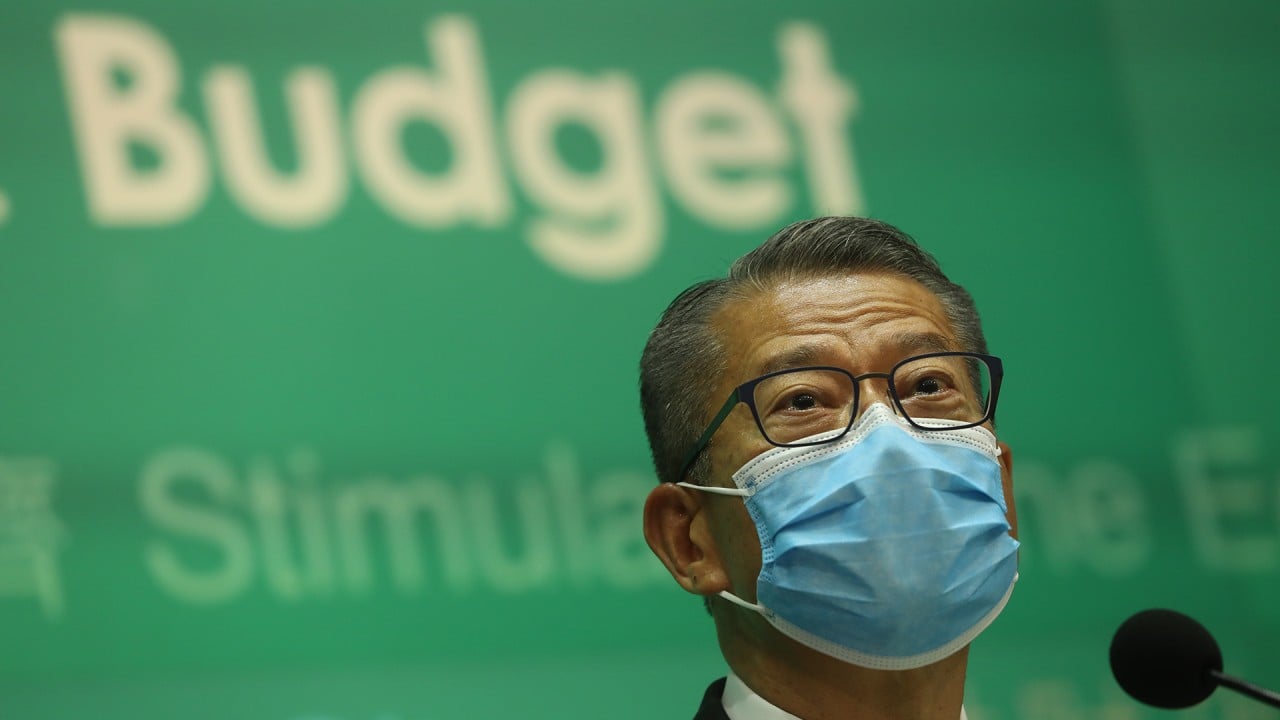
Hong Kong budget: civil service must keep staffing levels same and cut spending by 1 per cent
- The 1 per cent reduction, scheduled for the 2022-23 fiscal year, should not be too difficult to achieve, financial chief says
- Civil service unions warn ban on adding manpower will mean greater workload for already overloaded staff members
The civil service must freeze its overall headcount for 2021-22 and cut recurrent expenditure by 1 per cent for the following fiscal year, Hong Kong’s financial minister has said.

03:43
What Hong Kong’s 2021-22 budget means for residents of the city
The city is facing a record deficit of HK$257 billion (US$33.14 billion) for the current fiscal year and annual deficits are expected to continue for a number of years.
Chan said the 1 per cent cut in department spending would lead to savings of HK$3.9 billion and mainly be achieved through enhanced efficiency and adjusting priorities in terms of major items such as general expenses and subventions, which accounted for about 40 per cent of total annual expenditure. But day-to-day operations and public service would not be affected, he pledged.
“While it seems not too difficult to achieve the 1 per cent cut in recurrent expenditure, there is limited room for curbing expenses related to personal emoluments which account for about 60 per cent of recurrent expenditure of [departments],” he said.
A government source said hiring would be carried out to replace civil servants who retired or quit.
The government last cut spending six years ago when then financial secretary John Tsang Chun-wah required each bureau and department to trim expenses by 2 per cent over three financial years beginning in 2015/16.
Hong Kong budget: six key takeaways from finance minister’s speech
At a press conference, Alice Lau Yim, permanent secretary for financial services and the treasury, gave examples of how departments could meet the targeted 1 per cent cut, such as by reducing utility bills and outsourcing more jobs.
“The 1 per cent target is challenging, but we are confident that we can do it,” Lau said.
Li Kwai-yin, president of the Hong Kong Chinese Civil Servants’ Association, said the spending cuts and overall hiring freeze were “understandable” as civil servants should “ride out the difficult times” with the public amid a record deficit.
“Civil servants will be facing a heavier workload given a zero growth in manpower. The average output per worker has to be increased so as not to affect the services provided,” she said, adding that many staff members were already facing greater workloads amid the pandemic.
“Even though 1 per cent might not be too much, departments would really have to work hard to locate more areas to save expenditures,” Li said.
No pay rise for Hong Kong’s civil servants for first time in more than a decade
The civil service had about 160,000 workers in 2007 and counted 180,000 members last year, with thousands of new jobs created over the past few years. All civil servants had their pay frozen last year due to the city’s economic difficulties.
Leung Chau-ting, who heads the Federation of Civil Service Unions, said he expected that although the expenditure cut and manpower size limit might have a limited short-term impact, the government could consider resuming taking on new workers when the economy and the government’s financial difficulties eased.
With more than 6,000 civil servants retiring last year and a similar number expected this year, the workforce would be facing greater challenges over the coming months, he predicted.
“One cannot expect the horse to run fast when one does not let it graze,” Leung said. “The pressure on civil servants is only expected to increase [under the new schemes], and one day [some of them] may eventually stress out.”

